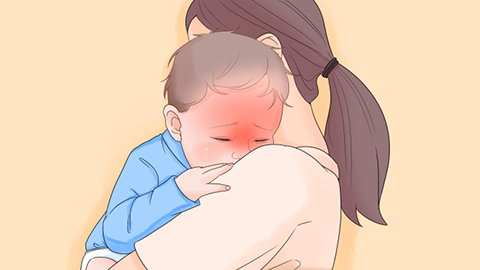What should be done for children with colds and runny noses?
Generally, rhinorrhea (runny nose) in children may be caused by nasal mucosa irritation, excessive fatigue, upper respiratory tract infection, sinusitis, nasal polyps, and other factors. Treatment options include general management and medication, under a doctor's guidance. A detailed analysis is as follows:

1. Nasal Mucosa Irritation
When children come into contact with cold air, dust, pollen, or other irritants, the nasal mucosa can become stimulated. To protect itself from these irritants, the nasal mucosa secretes large amounts of mucus, resulting in rhinorrhea. It is advisable to avoid exposing children to irritants, and to have them wear masks when outdoors.
2. Excessive Fatigue
Excessive fatigue in children can lead to a decrease in immunity, making them more susceptible to viral infections. Viral infections can cause inflammation of the nasal mucosa, resulting in increased secretions. Ensure children receive sufficient rest and avoid overexertion. Encourage appropriate physical exercise to strengthen their constitution.
3. Upper Respiratory Tract Infection
Upper respiratory tract infections are caused by viruses such as influenza virus or rhinovirus infecting the respiratory mucosa. The virus proliferates within the respiratory mucosa, stimulating increased mucus secretion, which may lead to symptoms such as the common cold and rhinorrhea. Fever, cough, and other symptoms may also be present. Under a doctor's guidance, medications such as ribavirin granules, ibuprofen suspension, and pediatric cough syrup may be used for treatment.
4. Sinusitis
Inflammation of the sinus mucosa may occur due to bacterial infection, allergies, or other causes. Inflammatory stimulation leads to increased and thickened secretions draining from the nasal cavity. Symptoms such as nasal congestion and reduced sense of smell may also occur. Under a doctor's recommendation, medications such as Biyuantongqiao Granules, Xiangju Capsules, and triamcinolone acetonide nasal spray may be used for treatment.
5. Nasal Polyps
Long-term inflammation can stimulate the nasal mucosa to form polyps. These polyps may obstruct normal nasal airflow, causing mucus accumulation and rhinorrhea. Symptoms such as headache and breathing difficulties may also occur. Under a doctor's recommendation, medications such as Biyuanshu Oral Liquid, Xing'ersizi Rhinitis Capsules, and roxithromycin capsules may be used for treatment.
Maintain good personal hygiene, wash hands frequently, and avoid contact with allergens. Follow a balanced diet to strengthen the body's immunity.





